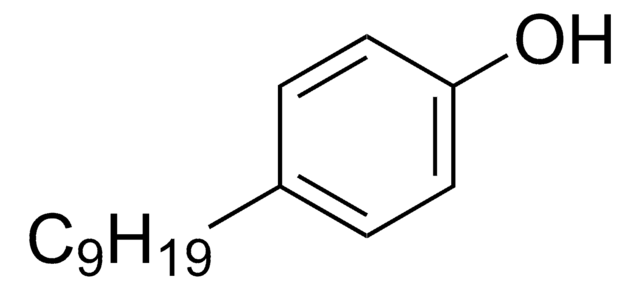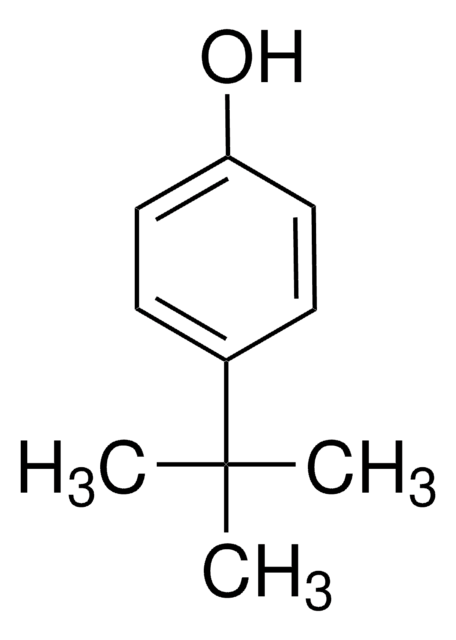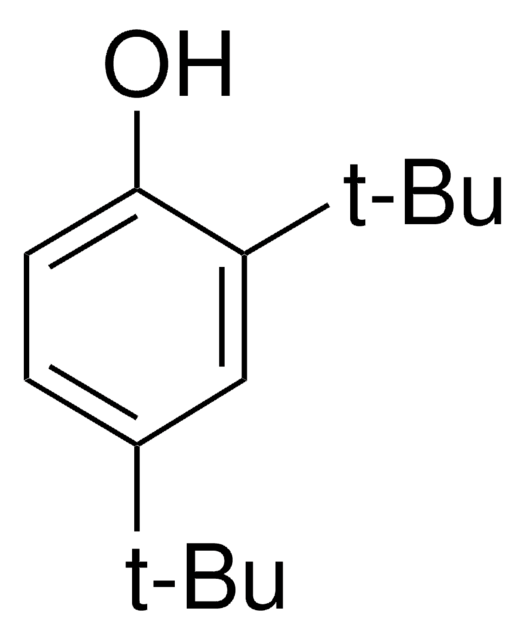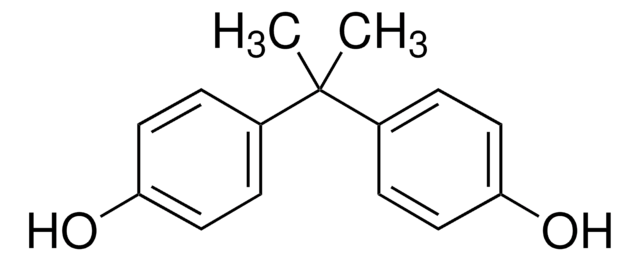290823
4-tert-Octylphenol
97%
Synonym(s):
4-(1,1,3,3-Tetramethylbutyl)phenol
About This Item
Recommended Products
Assay
97%
bp
175 °C/30 mmHg (lit.)
mp
79-82 °C (lit.)
solubility
water: slightly soluble 0.007 g/L at 20 °C
SMILES string
CC(C)(C)CC(C)(C)c1ccc(O)cc1
InChI
1S/C14H22O/c1-13(2,3)10-14(4,5)11-6-8-12(15)9-7-11/h6-9,15H,10H2,1-5H3
InChI key
ISAVYTVYFVQUDY-UHFFFAOYSA-N
Gene Information
mouse ... Esr1(13982)
Looking for similar products? Visit Product Comparison Guide
General description
Signal Word
Danger
Hazard Statements
Precautionary Statements
Hazard Classifications
Aquatic Acute 1 - Aquatic Chronic 1 - Eye Dam. 1 - Skin Irrit. 2
Storage Class Code
11 - Combustible Solids
WGK
WGK 3
Flash Point(F)
296.6 °F
Flash Point(C)
147 °C
Personal Protective Equipment
Choose from one of the most recent versions:
Already Own This Product?
Find documentation for the products that you have recently purchased in the Document Library.
Customers Also Viewed
Our team of scientists has experience in all areas of research including Life Science, Material Science, Chemical Synthesis, Chromatography, Analytical and many others.
Contact Technical Service









